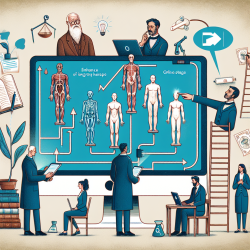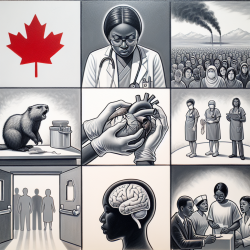Understanding Historical Medical Practices to Enhance Modern Therapy
As practitioners in the field of speech-language pathology, it's crucial to continuously refine our skills and methodologies. One way to achieve this is by examining historical medical practices and their implications on modern therapy. The research article titled Body Snatching: A Grave Medical Problem provides a fascinating historical perspective that can be leveraged to enhance our current practices.
The Historical Context of Body Snatching
The practice of body snatching, which involved the illegal exhumation of corpses for medical research, was prevalent in the 18th and 19th centuries. This controversial practice was driven by the demand for cadavers in medical education and research. Despite its ethical implications, body snatching played a pivotal role in advancing medical knowledge during that era.
Implications for Modern Therapy
While the practice of body snatching is now obsolete and ethically unacceptable, the underlying principle of pursuing knowledge to improve healthcare remains relevant. As practitioners, we can draw parallels between the relentless pursuit of knowledge in the past and our current commitment to data-driven decisions in therapy.
Here are some ways to implement insights from this historical practice into modern therapy:
- Embrace Continuous Learning: Just as early medical practitioners sought new knowledge through unconventional means, we should continuously seek out new research and methodologies to enhance our therapeutic practices.
- Ethical Considerations: While pursuing knowledge, it's crucial to maintain ethical standards. Modern therapy should be guided by evidence-based practices that respect the dignity and rights of all individuals.
- Innovative Approaches: The drive to overcome limitations in medical knowledge during the body snatching era can inspire us to adopt innovative approaches in therapy, such as integrating technology and personalized treatment plans.
Encouraging Further Research
To further enhance our skills, it's important to engage in ongoing research. By understanding historical practices and their outcomes, we can identify gaps in current methodologies and explore new avenues for improvement. Encouraging collaboration among practitioners and researchers can lead to groundbreaking advancements in therapy.
To read the original research paper, please follow this link: Body snatching: a grave medical problem.










